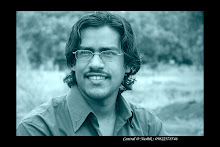THE ULTIMATE UNTOUCHABLE OF THE TWENTIETH CENTURY
Pyare Shivpuri
Mohandas Karamchand Gandhi, Bapu to millions of Indians, a Mahatma or Saint of modern times, was hit by an assassin's bullets in the Birla Temple Grounds in New Delhi on 30th January 1948. He did not die then. He is being killed off now. Slowly. Pacifists all over the world and particularly in India get together to pay homage to Gandhiji but the voice that once spoke for "the conscience of mankind" is muted in the cacophony of tripe tributes paid to him from a variety of platforms and the shrieks of pure terror heard from every devastated hamlet where the harijans have been harassed, molested or killed. We are proving once again that man can live without food or faith but not without a tangible god. And we are manufacturing a tangible god, though an utterly untouchable one, out of a perfectly touchable man. Gandhiji dedicated his life to eradication of untouchability of all kinds. In his death, he seems to have been made the ultimate untouchable of the twentieth century.
Gandhiji had built up a fairly remunerative law practice in South Africa but success as 'lawyer' eluded him. He realised that his role was not that of a custodian of statutes but that of a champion of justice. On his return to India, he marched to Dandie in contravention of the Salt Act, not merely because he was defying the might of the British Empire but because he was formulating a political device that an ordinary citizen anywhere could understand and accept. When he propounded the widespread use of the spinning wheel, he wasn't even remotely suggesting the closure of textile mills in the country. He was creating an equation between eternal motion and a measure of usefulness in the society. He had understood very clearly the difference between "power" and "strength" and was convinced that wherever and whenever "power" is confronted with "strength" the former loses out in the long run. Non‑violence in principle ‑ and civil disobedience or passive resistance, in practice ‑ was a strategy devised to confront the foreign ruling power with the strength of the natives. This very strategy has since been used in various parts of the world against oppression of all kinds. It is being used now in Poland, testing the very structure of Communist System. Yet, a dispassionate study of the principles of passive resistance reveals that it is a rather unfair game. In essence it is like this. "I will not strike at you. Never. But I shall provoke you to murderous rage. So provoked, when you aim your guns at me, the world will condemn you as the tyrant and bestow upon me the benefit of its benevolence".
Gandhiji's design for struggle for independence in India was an economic necessity. The Indian society could not support an armed wing of freedom fighters. An armed uprising against the British rule would not only have destroyed the momentum of the struggle, it would have become an elitist movement excluding the farmer and the labourer, that is to say 75% of India's population. As a non‑violent protest it has been the most popular movement in human history ‑ even more so than the French and the Russian revolutions. Gandhiji successfully confronted the foreign power that ruled over India. He hit them. He hit them hard. He even hit them below the belt. And then, in his characteristic generosity, forgave them their pain. But he could not appease the violence inherent in the Indian society. He reached out to the Hindus and the Moslems alike but could not bring their leadership together. He did not like the idea of partition and would have gladly accepted Mr Jinnah as the first Prime Minister of a free re-united India. As a matter of fact that move would have torpedoed the two nation theory. If a Moslem Prime Minister of a predominantly Hindu India had failed, nobody would dare raise the demand for Pakistan. On the other hand, if he made a success of the high office, nobody would care to do so. The economic considerations of authority for which the leaders of the Indian National Congress had indeed worked hard and waited long were within their easy reach. As long as Gandhiji merely theorised about the sacrifices that were necessary to carve a new destiny for an ancient land, he was loved and revered. When the time came and Gandhiji insisted that those sacrifices be actually made, he was cast aside. He accepted the partition as a bitter reality but on 15th August 1947, when the leaders of the Indian National Congress were rejoicing in the transfer of power New Delhi he was not even on the soil of free India.
The Indian National Congress was not designed as a political party. It was a forum for expression of Indian aspirations. Gandhiji had realised only too clearly that after independence, the Congress could not go on effectively representing the landlord and the tenant, the industrialist and the worker simultaneously. He advised that the Congress ought to be dissolved with the coming of independence. Fresh blood and new ideas were needed for the new era. He warned that if the Indian National Congress is not dissolved honourably and honestly, it will become stagnant and putrefied; it will be torn by factionalism, defections and dishonest intentions; it will perpetuate the cult of personality and come to a disastrous end with dire consequences for the whole country. Events have proved how right he was.
Gandhiji was not against industrialisation or modernisation. But he did not equate progress with it. He wanted India to be an agricultural king rather than remain an industrial beggar. He said that an inappropriate and indiscriminate development policy for the nation will rob the Indian of his self‑respect. Economic equations in India, he said, could only be built on the foundation of village industries. He knew that, the control of economic power requires clarity of vision. His lieutenants ‑ noble and genuine patriots all ‑ lacked that clarity. Slogans of progress had brought them the adulation of ever increasing Indian masses. Lost in that adulation and lost without the clarity of vision, the hub of leadership of the Indian National Congress became a centre of intrigues and conflicts. As a result an appropriate economic policy for the country could not be formulated. Today, Chief Ministers of many States are accused of corrupt practices ‑ one among them having been found guilty in a Court of law and having had to resign. Corruption is accepted as a part of the national fibre and nothing, but nothing, in India moves without a licence. And licence laws breed further corruption.
The advance of a capitalist industrial society creates a few very rich and many too poor to feed themselves. When such a stage is reached a movement for reform arises amongst the poor, sometimes with destructive outbursts. Gandhiji wanted to avoid wastage of national energy in that eruption. He insisted that the Indian should go back to the villages because, he explained, the solutions for the problems of the Indians as distinct from the problems of India could only be found in rural cooperation; in an environment of equality and openness. He recognised very early on the potential that lay locked in the untouchable of India. He also realised the explosive nature of conflict that would arise as the nation advanced on the road of industrialisation. He gave them a brand new name ‑ the harijan, children of god. He espoused their cause. He advocated the removal of stigma attached to the harijan. This process could release their locked energies, bring them into the mainstream of India's national efforts and eliminate the internal dissentions of the Hindu society.
The leaders of the government and the society set out to make laws banishing the practice of untouchability but did not make provisions for their effective application. Law is like a railway track. It does not move itself though it does make the movement of a train possible. The presence of the track, in itself, is no guarantee that the train will move. The Constitution outlaws the practice of untouchability but there is yet no social acceptance to enforcing that right. The Adult franchise gave to the harijan a powerful weapon ‑ the vote. It also provided the politician with a brand new method of manipulating the harijan population. Almost all of those politicians were people blessed with robust conscience and a hunger for justice. Almost all of them believed in social position, comfort and rich feeding. They were the kind of people who never become the salt of the earth but they do remain the substance of civilisation. And they save the society from criminals and conquerors. They also inflict upon the society immediately surrounding them a personal brand of morality. Gandhiji was aware of all this and saddened by it. I wonder what a sad man he must have been, when he was assassinated. Today, on the one hand, we proclaim him to be a Mahatma ‑ a Saint. On the other hand we inflict untold miseries on the harijan whose cause he espoused with all his might. In another fifty or perhaps a hundred years we will call him an incarnation of god. Another Christ, perhaps. One single atonement for an era full of sins and wrongs. We attribute extra qualities to Gandhiji because we have neither the tenacity to acquire his courage nor his courage to acquire tenacity. We dare not criticise him lest we should reveal how fragile our own structures are. Perhaps it is the tragedy of such a touch‑stone to become and remain the ultimate untouchable.
Cambridge, UK.
22nd January 1982.
Pyare Shivpuri
Mohandas Karamchand Gandhi, Bapu to millions of Indians, a Mahatma or Saint of modern times, was hit by an assassin's bullets in the Birla Temple Grounds in New Delhi on 30th January 1948. He did not die then. He is being killed off now. Slowly. Pacifists all over the world and particularly in India get together to pay homage to Gandhiji but the voice that once spoke for "the conscience of mankind" is muted in the cacophony of tripe tributes paid to him from a variety of platforms and the shrieks of pure terror heard from every devastated hamlet where the harijans have been harassed, molested or killed. We are proving once again that man can live without food or faith but not without a tangible god. And we are manufacturing a tangible god, though an utterly untouchable one, out of a perfectly touchable man. Gandhiji dedicated his life to eradication of untouchability of all kinds. In his death, he seems to have been made the ultimate untouchable of the twentieth century.
Gandhiji had built up a fairly remunerative law practice in South Africa but success as 'lawyer' eluded him. He realised that his role was not that of a custodian of statutes but that of a champion of justice. On his return to India, he marched to Dandie in contravention of the Salt Act, not merely because he was defying the might of the British Empire but because he was formulating a political device that an ordinary citizen anywhere could understand and accept. When he propounded the widespread use of the spinning wheel, he wasn't even remotely suggesting the closure of textile mills in the country. He was creating an equation between eternal motion and a measure of usefulness in the society. He had understood very clearly the difference between "power" and "strength" and was convinced that wherever and whenever "power" is confronted with "strength" the former loses out in the long run. Non‑violence in principle ‑ and civil disobedience or passive resistance, in practice ‑ was a strategy devised to confront the foreign ruling power with the strength of the natives. This very strategy has since been used in various parts of the world against oppression of all kinds. It is being used now in Poland, testing the very structure of Communist System. Yet, a dispassionate study of the principles of passive resistance reveals that it is a rather unfair game. In essence it is like this. "I will not strike at you. Never. But I shall provoke you to murderous rage. So provoked, when you aim your guns at me, the world will condemn you as the tyrant and bestow upon me the benefit of its benevolence".
Gandhiji's design for struggle for independence in India was an economic necessity. The Indian society could not support an armed wing of freedom fighters. An armed uprising against the British rule would not only have destroyed the momentum of the struggle, it would have become an elitist movement excluding the farmer and the labourer, that is to say 75% of India's population. As a non‑violent protest it has been the most popular movement in human history ‑ even more so than the French and the Russian revolutions. Gandhiji successfully confronted the foreign power that ruled over India. He hit them. He hit them hard. He even hit them below the belt. And then, in his characteristic generosity, forgave them their pain. But he could not appease the violence inherent in the Indian society. He reached out to the Hindus and the Moslems alike but could not bring their leadership together. He did not like the idea of partition and would have gladly accepted Mr Jinnah as the first Prime Minister of a free re-united India. As a matter of fact that move would have torpedoed the two nation theory. If a Moslem Prime Minister of a predominantly Hindu India had failed, nobody would dare raise the demand for Pakistan. On the other hand, if he made a success of the high office, nobody would care to do so. The economic considerations of authority for which the leaders of the Indian National Congress had indeed worked hard and waited long were within their easy reach. As long as Gandhiji merely theorised about the sacrifices that were necessary to carve a new destiny for an ancient land, he was loved and revered. When the time came and Gandhiji insisted that those sacrifices be actually made, he was cast aside. He accepted the partition as a bitter reality but on 15th August 1947, when the leaders of the Indian National Congress were rejoicing in the transfer of power New Delhi he was not even on the soil of free India.
The Indian National Congress was not designed as a political party. It was a forum for expression of Indian aspirations. Gandhiji had realised only too clearly that after independence, the Congress could not go on effectively representing the landlord and the tenant, the industrialist and the worker simultaneously. He advised that the Congress ought to be dissolved with the coming of independence. Fresh blood and new ideas were needed for the new era. He warned that if the Indian National Congress is not dissolved honourably and honestly, it will become stagnant and putrefied; it will be torn by factionalism, defections and dishonest intentions; it will perpetuate the cult of personality and come to a disastrous end with dire consequences for the whole country. Events have proved how right he was.
Gandhiji was not against industrialisation or modernisation. But he did not equate progress with it. He wanted India to be an agricultural king rather than remain an industrial beggar. He said that an inappropriate and indiscriminate development policy for the nation will rob the Indian of his self‑respect. Economic equations in India, he said, could only be built on the foundation of village industries. He knew that, the control of economic power requires clarity of vision. His lieutenants ‑ noble and genuine patriots all ‑ lacked that clarity. Slogans of progress had brought them the adulation of ever increasing Indian masses. Lost in that adulation and lost without the clarity of vision, the hub of leadership of the Indian National Congress became a centre of intrigues and conflicts. As a result an appropriate economic policy for the country could not be formulated. Today, Chief Ministers of many States are accused of corrupt practices ‑ one among them having been found guilty in a Court of law and having had to resign. Corruption is accepted as a part of the national fibre and nothing, but nothing, in India moves without a licence. And licence laws breed further corruption.
The advance of a capitalist industrial society creates a few very rich and many too poor to feed themselves. When such a stage is reached a movement for reform arises amongst the poor, sometimes with destructive outbursts. Gandhiji wanted to avoid wastage of national energy in that eruption. He insisted that the Indian should go back to the villages because, he explained, the solutions for the problems of the Indians as distinct from the problems of India could only be found in rural cooperation; in an environment of equality and openness. He recognised very early on the potential that lay locked in the untouchable of India. He also realised the explosive nature of conflict that would arise as the nation advanced on the road of industrialisation. He gave them a brand new name ‑ the harijan, children of god. He espoused their cause. He advocated the removal of stigma attached to the harijan. This process could release their locked energies, bring them into the mainstream of India's national efforts and eliminate the internal dissentions of the Hindu society.
The leaders of the government and the society set out to make laws banishing the practice of untouchability but did not make provisions for their effective application. Law is like a railway track. It does not move itself though it does make the movement of a train possible. The presence of the track, in itself, is no guarantee that the train will move. The Constitution outlaws the practice of untouchability but there is yet no social acceptance to enforcing that right. The Adult franchise gave to the harijan a powerful weapon ‑ the vote. It also provided the politician with a brand new method of manipulating the harijan population. Almost all of those politicians were people blessed with robust conscience and a hunger for justice. Almost all of them believed in social position, comfort and rich feeding. They were the kind of people who never become the salt of the earth but they do remain the substance of civilisation. And they save the society from criminals and conquerors. They also inflict upon the society immediately surrounding them a personal brand of morality. Gandhiji was aware of all this and saddened by it. I wonder what a sad man he must have been, when he was assassinated. Today, on the one hand, we proclaim him to be a Mahatma ‑ a Saint. On the other hand we inflict untold miseries on the harijan whose cause he espoused with all his might. In another fifty or perhaps a hundred years we will call him an incarnation of god. Another Christ, perhaps. One single atonement for an era full of sins and wrongs. We attribute extra qualities to Gandhiji because we have neither the tenacity to acquire his courage nor his courage to acquire tenacity. We dare not criticise him lest we should reveal how fragile our own structures are. Perhaps it is the tragedy of such a touch‑stone to become and remain the ultimate untouchable.
Cambridge, UK.
22nd January 1982.







